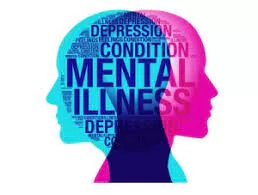Jodhpur, India – January 31, 2024
A recent study conducted by the Indian Institute of Technology (IIT) Jodhpur sheds light on a significant underreporting of mental health problems, highlighting a considerable gap in addressing the true burden of the disease. The findings, based on the 75th Round National Sample Survey (2017-18), suggest that self-reporting rates for mental illness were less than 1%, indicating a prevalent disparity between actual mental health issues and those officially acknowledged.
Dr. Alok Ranjan, Assistant Professor at the School of Liberal Arts (SOLA) IIT Jodhpur, emphasized that societal stigma acts as a substantial barrier to reporting mental health concerns. “In today’s society, the reluctance to report mental health issues persists due to the prevailing stigma. Individuals, fearing social judgment, often choose silence over seeking help. Destigmatizing mental health is crucial to fostering an environment where seeking support is embraced,” he stated.
Published in the International Journal of Mental Health Systems, the study collected data from 555,115 individuals, encompassing both rural (3,25,232) and urban (2,29,232) populations. The sample included 283 outpatient and 374 hospitalization cases due to mental disorders across India.
The study also shed light on the substantial out-of-pocket expenses incurred by individuals seeking mental health services, primarily due to reliance on the private sector. Logistic regression models revealed that individuals with higher incomes were 1.73 times more likely to report health problems compared to those with lower incomes.
Furthermore, the study indicated that the private sector played a significant role in providing mental health services, accounting for 66.1% of outpatient care and 59.2% of inpatient care. Shockingly, only 23% of individuals hospitalized for mental disorders had health insurance coverage at the national level.
Average out-of-pocket expenditures for both hospitalization and outpatient care were markedly higher in the private sector compared to the public sector, emphasizing the economic burden faced by individuals seeking mental health support.
The study’s findings underscore the urgent need for destigmatization campaigns and policy changes to encourage open discussions about mental health. By addressing the societal barriers and improving accessibility to affordable mental health services, policymakers and advocates aim to bridge the gap between actual mental health issues and reported cases, ensuring a more accurate representation of the burden of mental health in the population.












